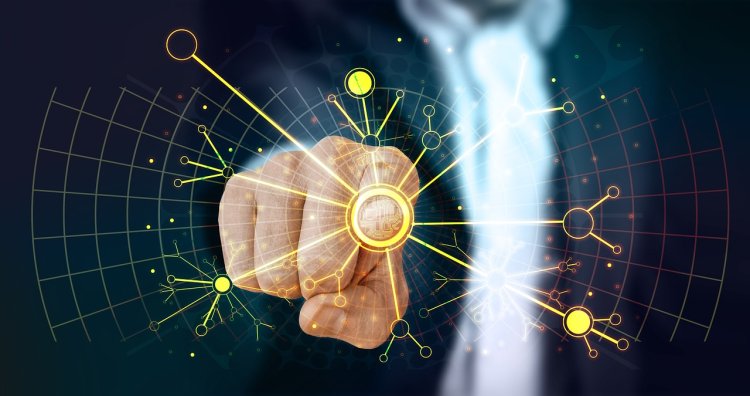The End of Reading & Writing? How AI is Shaping the Future of Communication
In the heart of every Indian household, there’s always been a deep-rooted respect for reading and writing. Whether it's our sacred scriptures, handwritten letters from grandparents, or the morning ritual of devouring newspapers with chai, text has been an inseparable part of our culture. But as technology evolves, so do our means of communication.
A radical thought is emerging: Are we the last generation that will read and write? Will future generations abandon text in favor of video, audio, and AI-powered immersive experiences? It sounds far-fetched, but it may be closer to reality than we think.
From Palm Leaves to Pixels: The Evolution of Communication
India has a rich history of storytelling, from oral traditions passed down by our ancestors to the advent of written scriptures like the Vedas and epics like the Mahabharata. Fast forward to modern times, and we've embraced digital communication—WhatsApp forwards, YouTube explainers, and voice notes replacing long texts.
The shift from text to visual and audio-driven communication isn’t just convenience-driven; it’s evolutionary. With the rise of AI, video content is becoming more accessible, more engaging, and—most importantly—easier to create.
AI: The New Author, Director, and Storyteller

Artificial intelligence is revolutionizing content creation. What once took months of production, expensive equipment, and technical expertise can now be done in minutes with AI tools. Imagine this:
- AI-generated podcasts that sound indistinguishable from human hosts.
- Ultra-realistic AI avatars delivering news instead of anchors.
- AI storytellers narrating bedtime stories in a grandparent’s voice.
Platforms like TikTok, YouTube Shorts, and Instagram Reels are proof that we are moving towards bite-sized, highly engaging content formats. The younger generation prefers watching a two-minute explainer video over reading a long article. And let’s be honest, even most of us prefer a quick YouTube tutorial over reading a 10-page instruction manual!
The Decline of Text: A Natural Progression?
Text, as beautiful and poetic as it is, has its limitations. It’s a lossy medium—it lacks the tone, emotion, and context that voice and visuals bring. Think about the last time you misinterpreted a WhatsApp message because it lacked emotion. This is exactly where AI-enhanced video and voice communication shine.
Moreover, text has thrived not because it’s superior, but because it has historically been the cheapest way to record and share information. But with AI making video and audio content cheaper and easier to produce, will text slowly fade into history like Sanskrit and Morse code?
The Future: Personalized, Interactive, and AI-Driven
With AI advancing rapidly, our media consumption habits will drastically change:
- AI-Powered Education: Imagine a fully interactive history lesson where you can "meet" Mahatma Gandhi and hear his speech in real-time, rather than just reading about it in textbooks.
- Immersive Entertainment: Personalized storytelling where the plot adapts to your emotions and choices.
- AI in E-Commerce: Instead of reading product reviews, you’ll see AI-generated videos tailored to your preferences.
⚖️ The Ethical Dilemma: Can We Trust AI-Generated Content?

As exciting as it sounds, AI-driven media raises critical ethical questions:
- Can AI-generated voices and deepfake videos be misused?
- Will AI-recommended content create echo chambers, limiting our worldview?
- How do we ensure authenticity in a world where AI can create anything?
These are crucial discussions that India, with its tech-savvy population and deep-rooted ethical values, must actively participate in.
Embracing the Change: What’s Next for India?
India has always been a land of adaptation—from adopting English as a business language to leading the mobile-first revolution. Now, we stand at the brink of yet another transformation. With AI democratizing content creation, we must ensure that these technologies are used responsibly and inclusively.
So, will reading and writing become obsolete? Perhaps not entirely. Just like Sanskrit, text might remain a cherished skill, a sign of wisdom, and a marker of tradition. But make no mistake—the future of communication is shifting, and AI is leading the way.
Are we ready for this change? Only time will tell, but one thing is certain: the way we communicate will never be the same again.

What’s your take? Do you think text will survive in the AI era, or will video and audio take over completely? Drop your thoughts in the comments below!
What's Your Reaction?




















